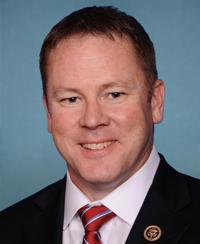H.R. 3432: Trump Derangement Syndrome Research Act of 2025
This bill, known as the Trump Derangement Syndrome Research Act of 2025, aims to enhance the understanding of a psychological phenomenon referred to as Trump Derangement Syndrome (TDS).
Key Provisions of the Bill
- Purpose: The bill directs the Director of the National Institutes of Health (NIH) to conduct or support research on TDS, which is described as a behavioral or psychological response to Donald J. Trump and his presence, actions, or statements.
- Research Scope: The NIH is tasked with exploring various aspects of TDS, including:
- Identifying the initial emergence or earliest cases of TDS, often referred to as “patient zero.”
- Investigating the long-term psychological, social, or behavioral impacts of TDS on individuals, communities, or public discussions.
- Analyzing contributing factors to the development or spread of TDS, such as media exposure and political dynamics.
- Exploring potential interventions or strategies to mitigate any adverse effects of TDS.
- Collaboration: The Director of the NIH is encouraged to collaborate with federal agencies, academic institutions, and relevant organizations to achieve these research objectives.
- Reporting: The Director must submit an annual report to Congress detailing the research progress, initial findings, and recommendations for further studies or public health measures, starting two years after the bill’s enactment.
Context and Findings
The bill outlines several findings that support the need for research into TDS, including:
- Early documented references to TDS have emerged since Donald Trump’s 2016 presidential campaign.
- Media reporting has been noted as a factor that amplifies polarized responses and contributes to societal division regarding Trump.
- Selected reporting and unverified claims about Trump are said to have fueled public outrage, resulting in heightened emotional responses.
- Confirmed instances of assassination attempts against Trump are mentioned as part of the repercussions of TDS, indicating its societal impact.
- Research into TDS may yield insights into broader issues such as political polarization and media influence, which have implications for public health and societal cohesion.
Definition of TDS
The bill provides a definition of Trump Derangement Syndrome (TDS) as a behavioral or psychological phenomenon characterized by significant emotional or cognitive reactions to Donald Trump and his public presence.
Implementation
The proposed legislation emphasizes utilizing existing NIH programs and authorities to conduct this research, reflecting a focus on understanding the psychological and social factors underlying TDS.
Relevant Companies
None found.
This is an AI-generated summary of the bill text. There may be mistakes.
Sponsors
2 bill sponsors
Actions
2 actions
| Date | Action |
|---|---|
| May. 15, 2025 | Introduced in House |
| May. 15, 2025 | Referred to the House Committee on Energy and Commerce. |
Corporate Lobbying
0 companies lobbying
None found.
* Note that there can be significant delays in lobbying disclosures, and our data may be incomplete.
Potentially Relevant Congressional Stock Trades
No relevant congressional stock trades found.

